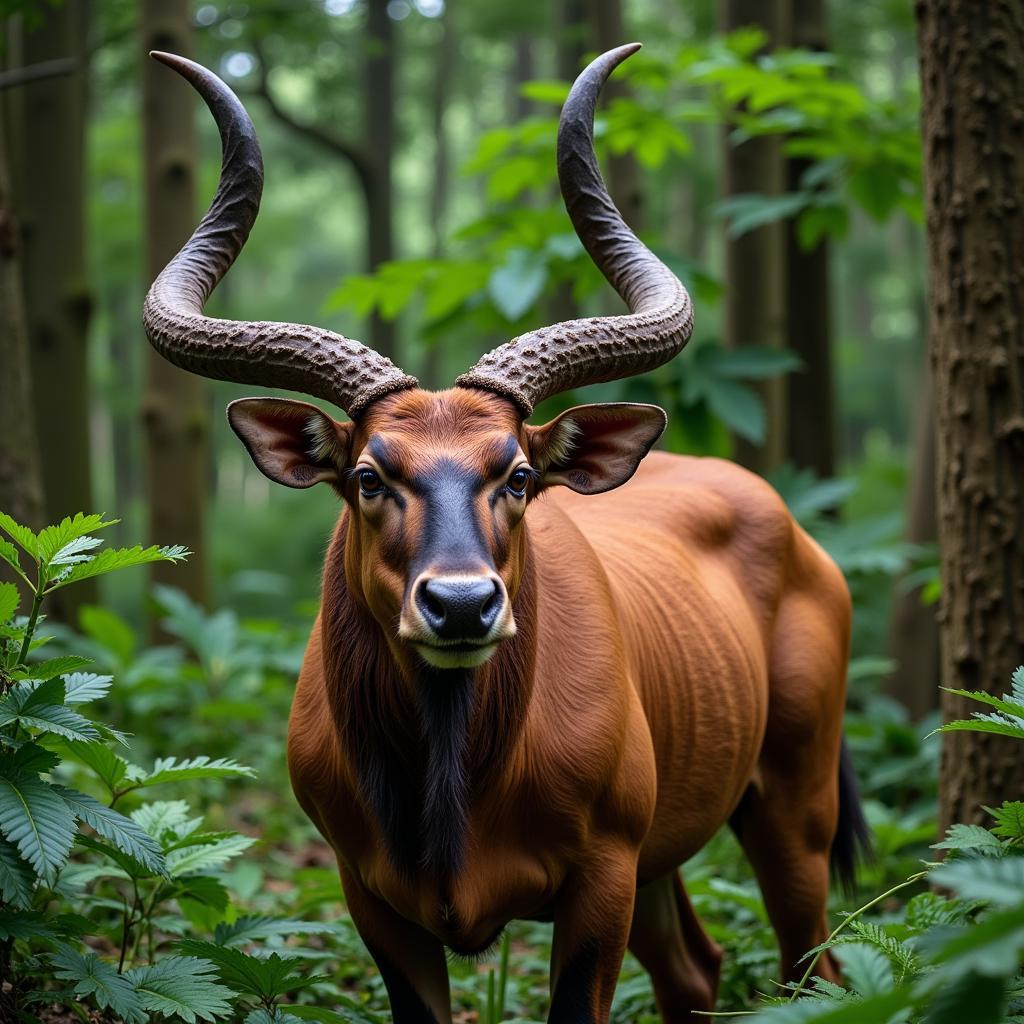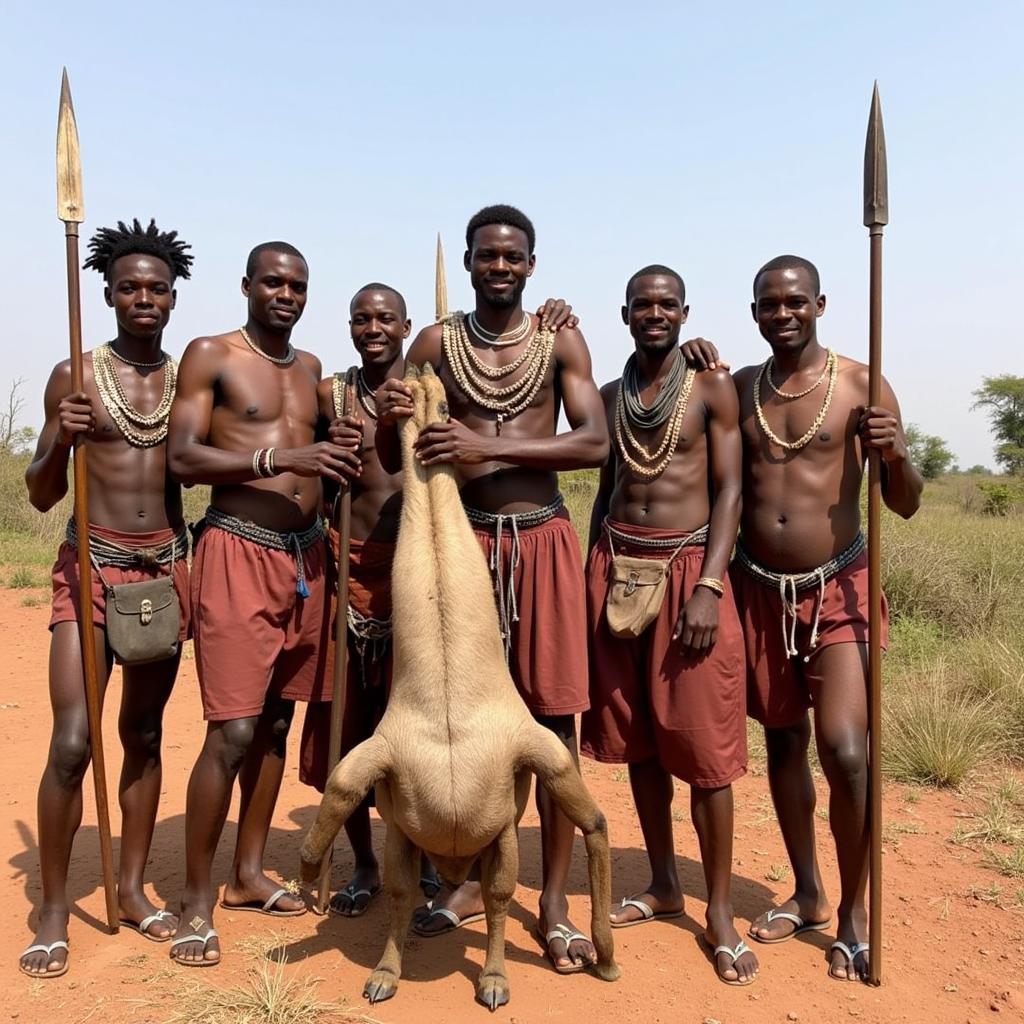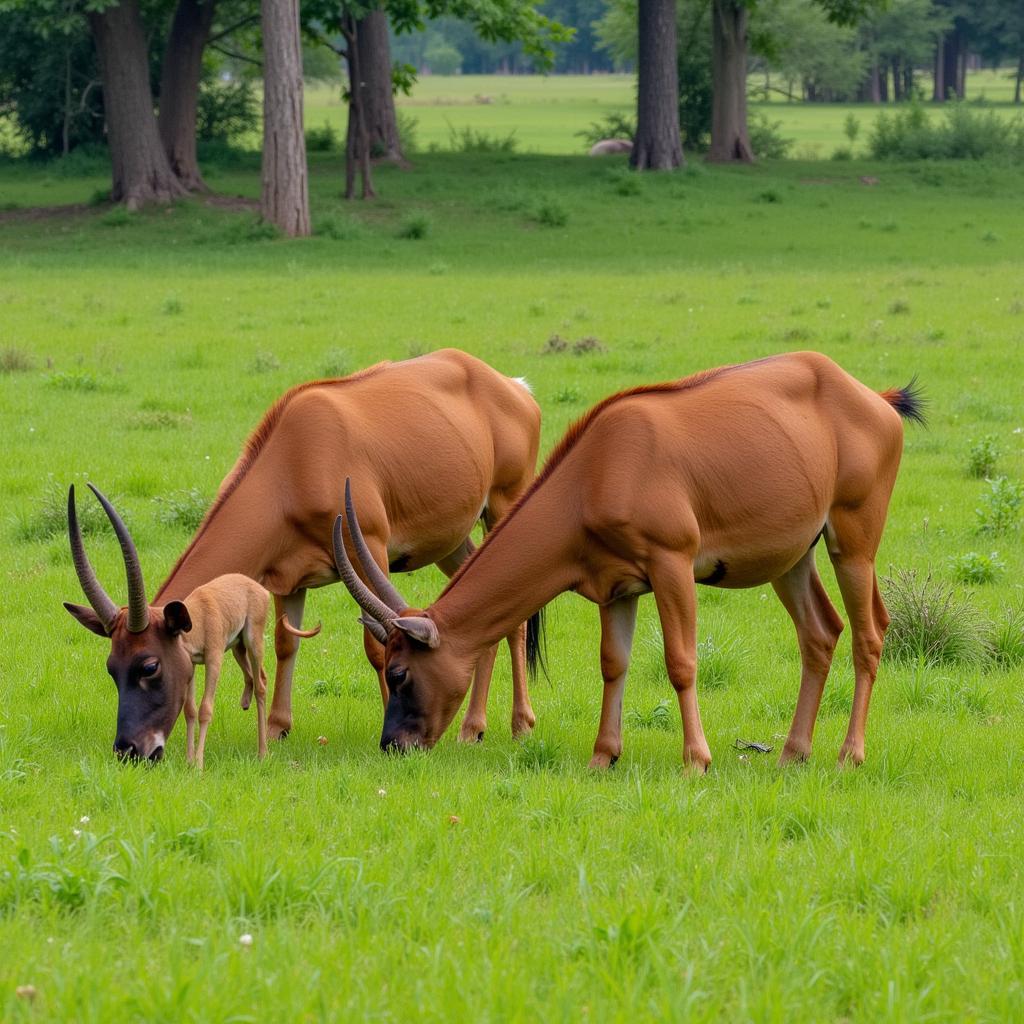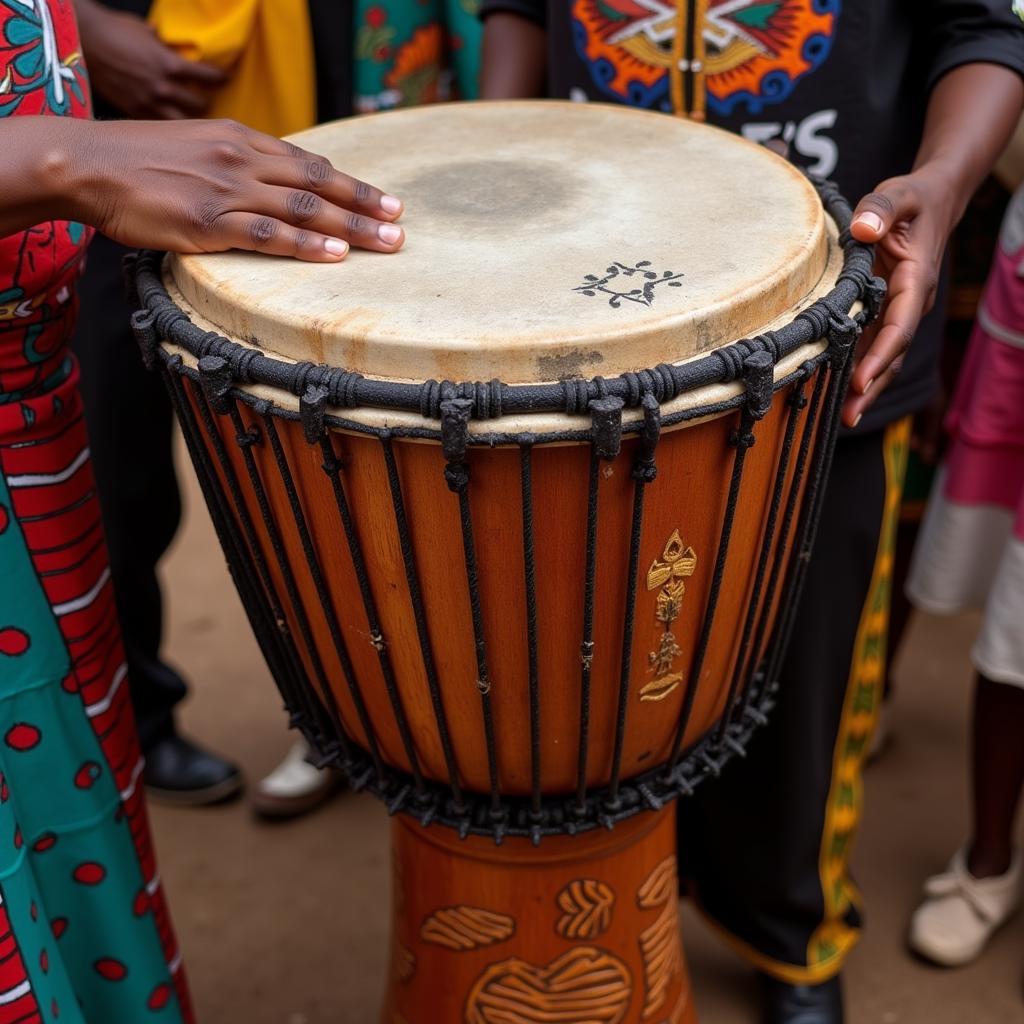The Allure and Controversy of an African Bongo Hunt
The African Bongo Hunt: a pursuit steeped in history, challenge, and controversy. This majestic antelope, with its striking reddish-brown coat and spiraled horns, has captivated hunters for centuries. However, the bongo’s elusive nature and the ethical considerations surrounding its pursuit have made it a subject of both fascination and debate.
The Elusive Bongo: An Icon of the African Jungle
 African bongo standing in dense rainforest
African bongo standing in dense rainforest
Found in the dense rainforests of Central and East Africa, the bongo is a master of camouflage and stealth. Its keen senses and powerful build make it a formidable challenge for even the most experienced hunters. The allure of an African bongo hunt lies in the thrill of tracking this elusive creature through challenging terrain, relying on skill, patience, and a deep understanding of the bongo’s behavior.
The bongo’s size and strength add to the challenge. A mature male can weigh over 800 pounds, making it one of the largest antelope species in Africa. Its spiraled horns, which can grow up to 40 inches long, are a testament to its power and a prized trophy for hunters.
The History and Evolution of Bongo Hunting in Africa
 Traditional African hunters with bongo and spear
Traditional African hunters with bongo and spear
Bongo hunting has been part of African culture for centuries. Indigenous communities relied on bongo for sustenance, utilizing its meat for food and its hide for clothing and shelter. Hunting was often a communal activity, steeped in ritual and tradition, reflecting a deep respect for the animal and the delicate balance of nature.
However, with the arrival of European colonialism in the 19th century, bongo hunting underwent a significant transformation. Trophy hunting emerged as a popular pursuit among wealthy Europeans, leading to overhunting and a decline in bongo populations. The focus shifted from sustenance to sport, and the use of modern firearms further impacted the bongo’s survival.
The Debate: Conservation Concerns and Ethical Considerations
 African bongo grazing peacefully in a protected area
African bongo grazing peacefully in a protected area
Today, the African bongo is classified as a “Near Threatened” species by the International Union for Conservation of Nature (IUCN). Habitat loss due to deforestation and human encroachment remains a significant threat. The legacy of overhunting, coupled with the ongoing challenges of poaching and habitat destruction, has fueled a global debate on the ethics of bongo hunting.
Proponents of sustainable hunting argue that well-regulated hunts, with strict quotas and revenue-sharing programs with local communities, can contribute to conservation efforts and provide economic incentives for habitat protection. They emphasize the importance of hunting tourism in creating jobs and supporting rural livelihoods.
Opponents argue that any form of trophy hunting is ethically unacceptable, particularly for a species facing conservation challenges. They advocate for non-lethal alternatives such as ecotourism and wildlife photography, which promote conservation awareness and generate revenue without harming animals.
The Future of the African Bongo: A Shared Responsibility
The future of the African bongo, like many endangered species, rests on a delicate balance. Addressing habitat loss through sustainable land management practices is crucial. Effective anti-poaching measures are essential to combat illegal hunting and protect remaining populations.
“The key to bongo conservation lies in community-based initiatives,” says Dr. John Kamau, a wildlife biologist with over 20 years of experience in East Africa. “Empowering local communities to manage and benefit from their natural resources is essential for long-term success.”
Ultimately, the African bongo hunt presents a complex ethical dilemma. Navigating this challenge requires a nuanced understanding of the ecological, social, and economic factors at play. Open dialogue, informed decision-making, and a commitment to conservation are paramount to ensuring the survival of this iconic African species.
FAQs About African Bongo Hunts
1. Are African bongo hunts legal?
The legality of bongo hunts varies depending on the country and specific regulations in place. Some countries allow bongo hunting under strict guidelines, while others have banned it entirely.
2. How much does an African bongo hunt cost?
The cost of an African bongo hunt can range widely depending on factors such as the hunting outfitter, duration of the hunt, and trophy fees.
3. What is being done to protect the African bongo?
Conservation organizations are working to protect the African bongo through habitat restoration, anti-poaching initiatives, and community-based conservation programs.
Exploring More of Africa’s Wildlife
If you’re fascinated by the African bongo, delve deeper into the continent’s diverse fauna:
- Discover the vibrant world of African chameleons.
- Learn about the incredible African jungle mammals that share the bongo’s habitat.
- Uncover 10 fun facts about the Central African Republic, a key bongo habitat.
- Explore a collection of cute African animals that will capture your heart.
The African bongo serves as a poignant reminder of the interconnectedness of wildlife, human actions, and the delicate balance of nature. By understanding the complexities of the African bongo hunt, we can contribute to a future where both people and wildlife thrive.
For inquiries about African wildlife and conservation efforts, contact us at:
Phone: +255768904061
Email: [email protected]
Address: Mbarali DC Mawindi, Kangaga, Tanzania.
Our dedicated team is available 24/7 to assist you.

